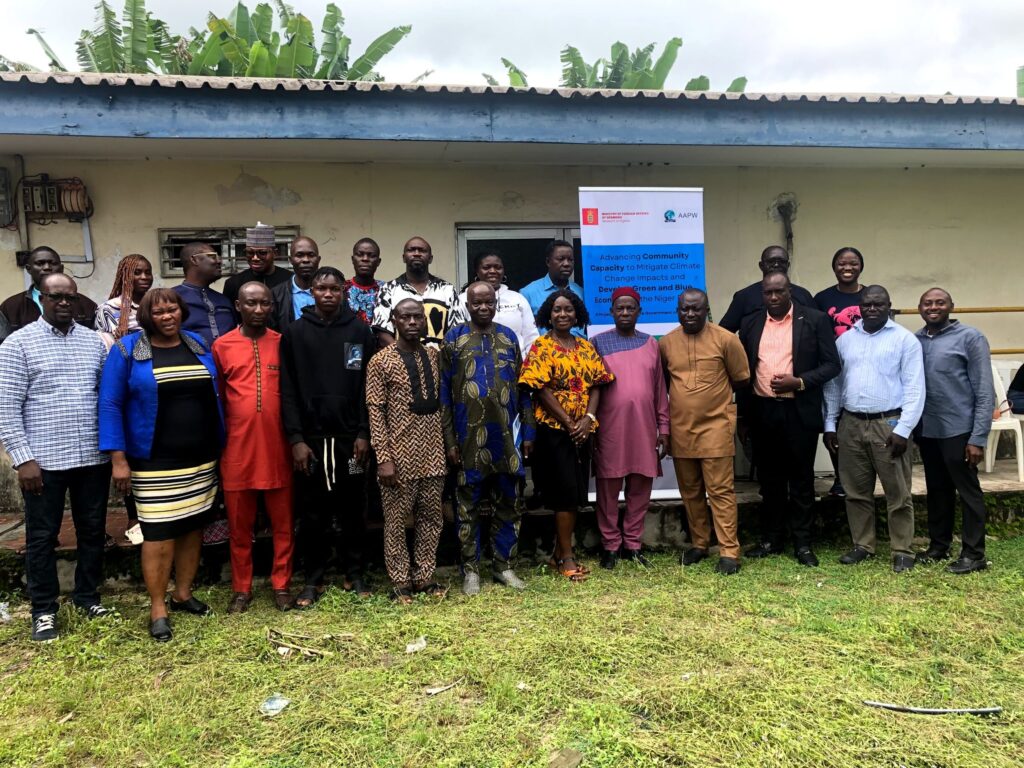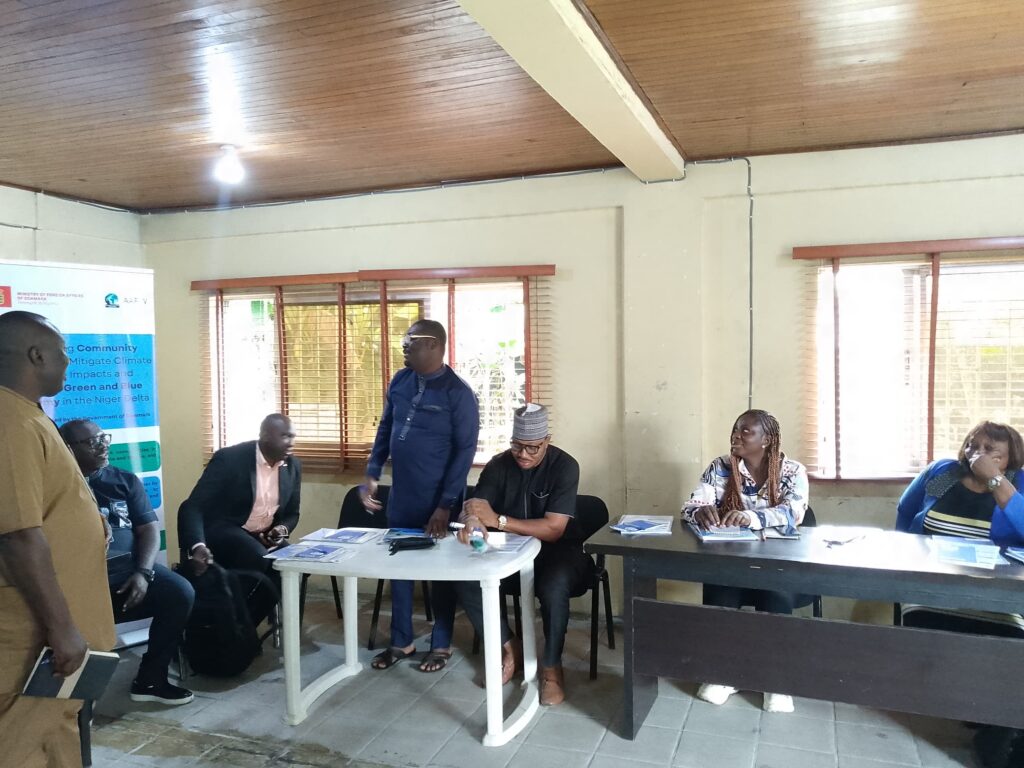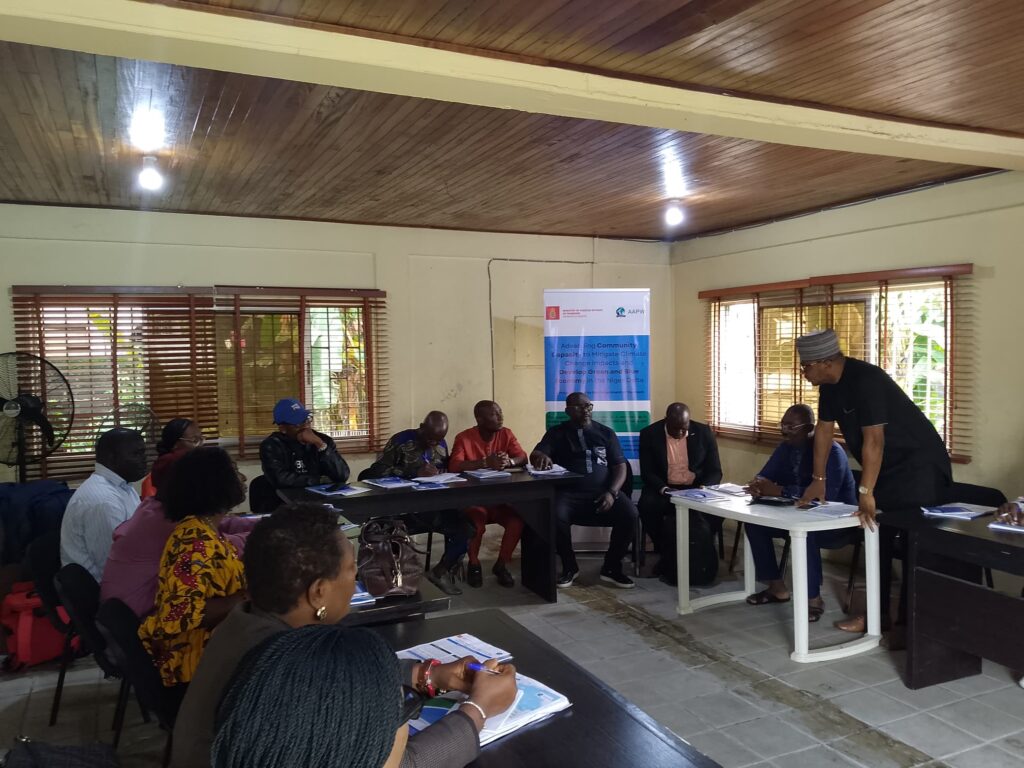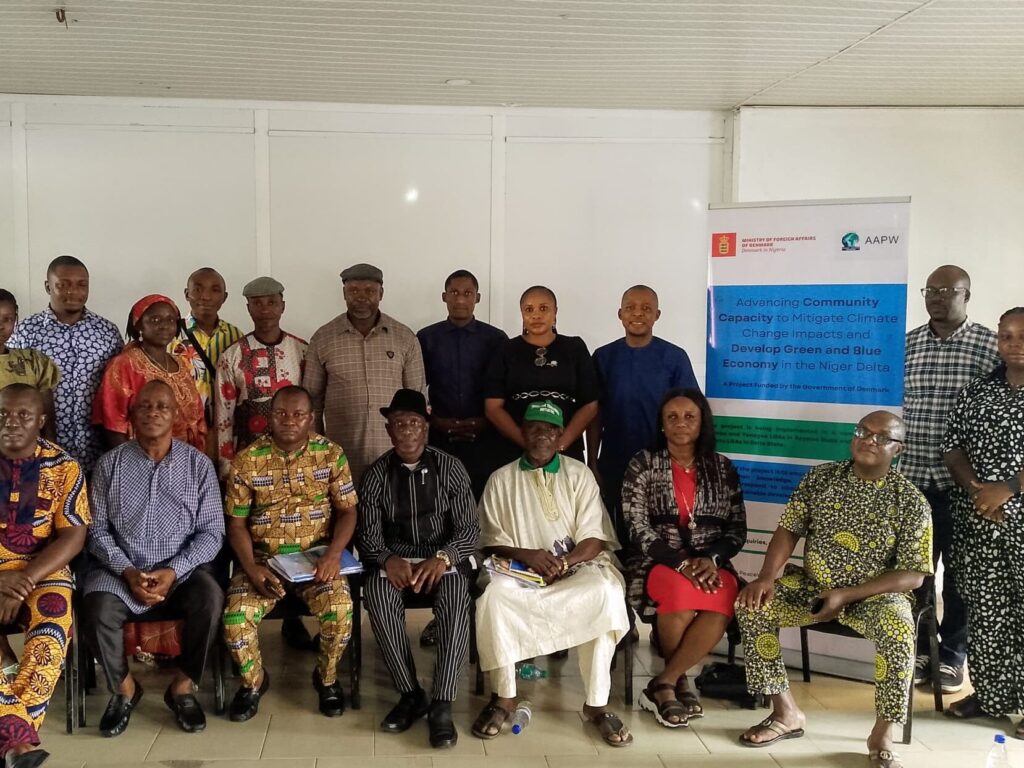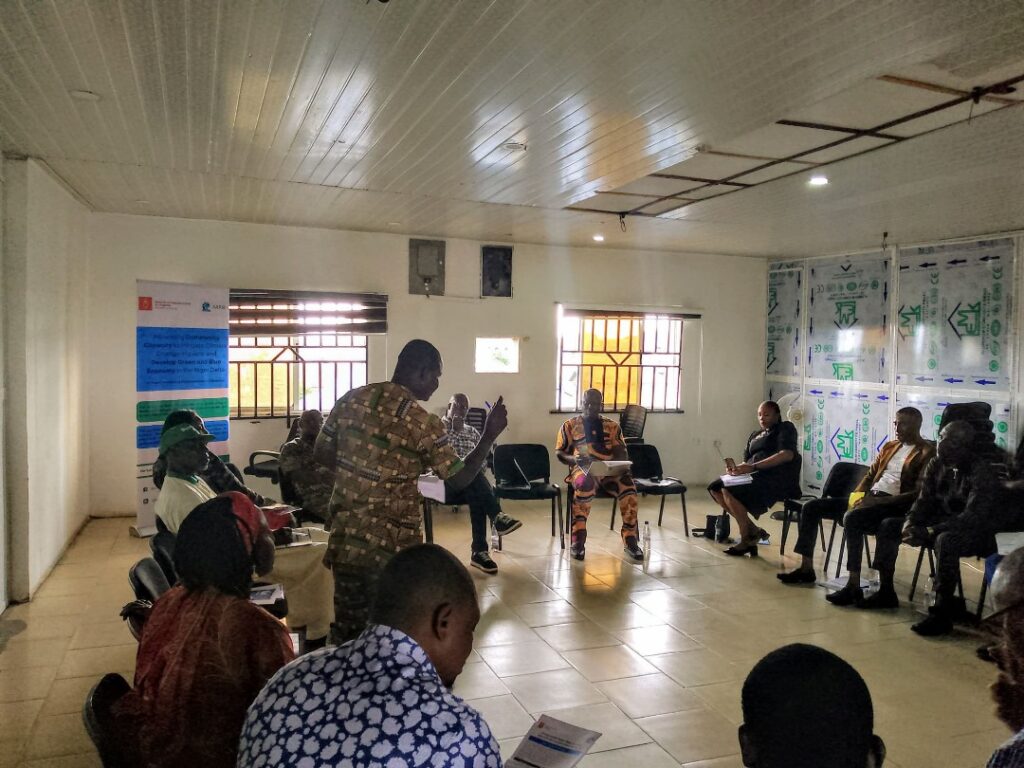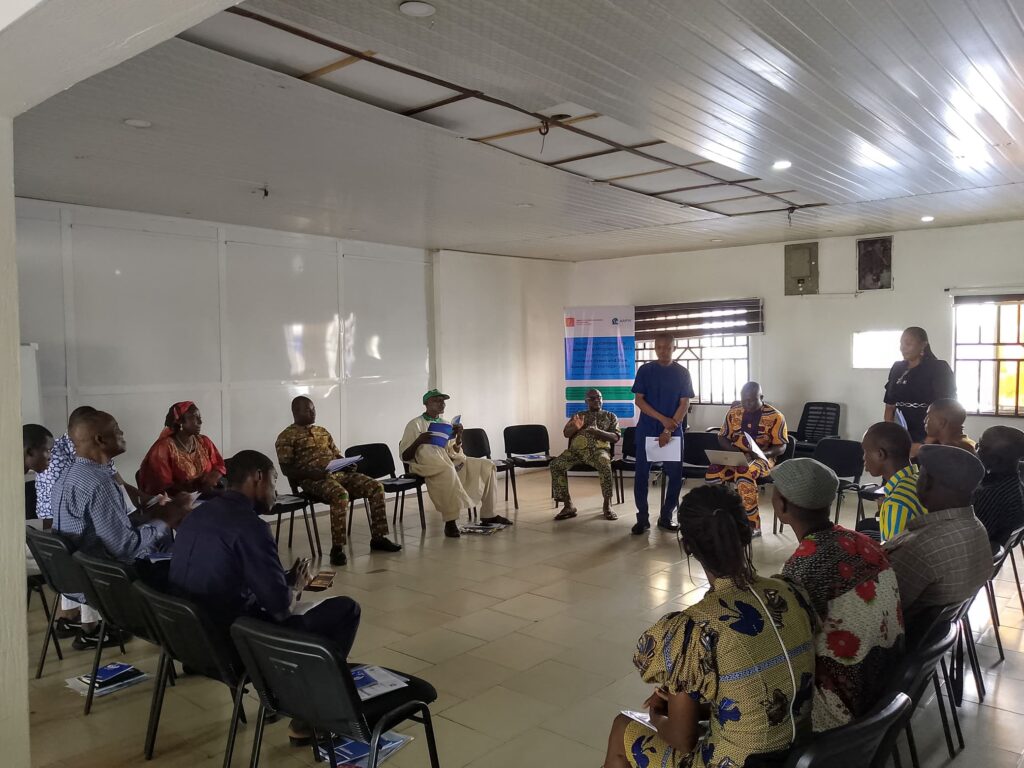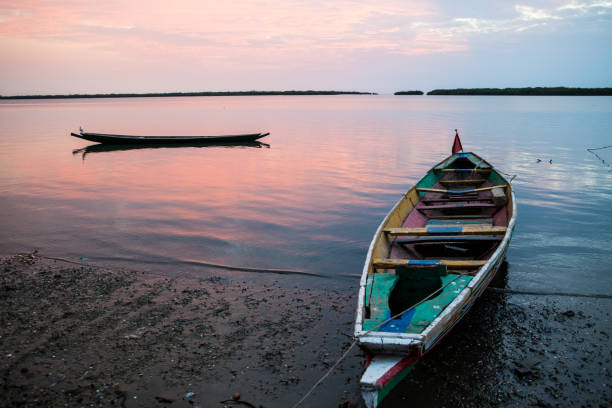Advancing Community Capacity to Mitigate Climate Change and Develop Green and Blue Economy in the Niger Delta
Introduction
The Niger Delta, one of the world’s largest oil-producing regions, significantly contributes to the global crude oil supply. However, petroleum exploration and exploitation have caused severe environmental and social issues, including extensive oil spills, gas flaring, and deforestation. These activities have degraded ecosystems and jeopardized the livelihoods of many communities, while also contributing to climate change through greenhouse gas emissions. Consequently, the region faces extreme weather conditions such as floods, erosion, sea level rise, acidification, heat waves, and unpredictable rainfall. These climate impacts threaten food and water security, and exacerbate poverty, insecurity, crime, and conflict, making the region particularly vulnerable to climate change.
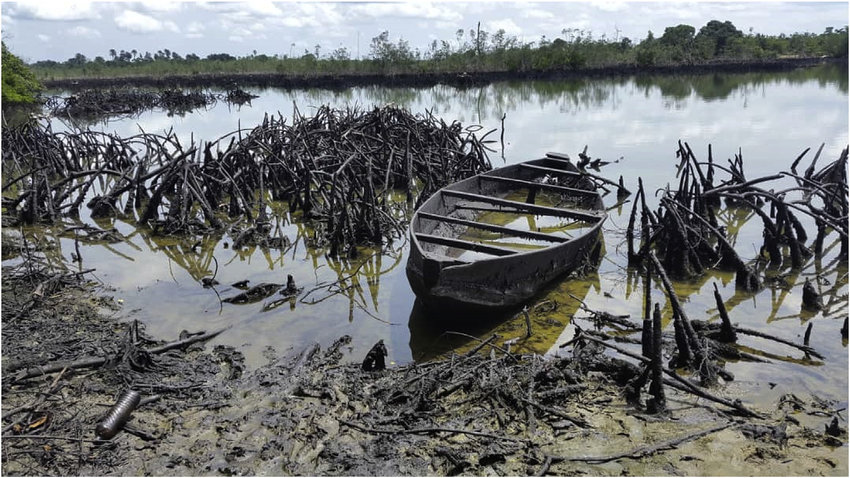
In recent years, increased criminal activities, including piracy, have emerged as citizens, unable to find sustainable livelihoods, are easily recruited by criminal groups exploiting weak governance and security. Public awareness and understanding of the benefits of blue and green economy initiatives are generally low, hindering community support and participation. Additionally, technical skills and capacity among community members to engage in these activities are lacking. Poverty is increasing, with traditional livelihoods such as fishing and farming harshly affected, leading to displacement and migration. This often results in increased vulnerability and criminal activities such as piracy, illegal bunkering, and artisanal crude oil refining. Agricultural livelihoods have resorted to harmful practices, further reducing sustainable maritime and eco-friendly endeavours. Extensive environmental degradation from oil exploration, pollution, and deforestation poses significant challenges to developing blue and green economy initiatives, which require a healthy, sustainable environment.
The interconnection between petroleum activities, climate change, piracy, and the green and blue economy underscored the urgent need for sustainable practices beyond short-term profits. The “Advancing Community Capacity to Mitigate Climate Change Impacts and Develop Green and Blue Economy in the Niger Delta” project aims to incorporate cost-efficient, ecosystem-based adaptation measures to mitigate these impacts and build resilience in coastal communities.
Developing a green and blue economy involves transitioning to sustainable, low-carbon practices, including renewable energy, sustainable agriculture, and green industries. The goal is to create an economy that supports environmental protection, social inclusion, and economic growth while reducing greenhouse gas emissions. The success of the project necessitates collaboration among local communities, government agencies, NGOs, and the private sector, through capacity-building programs, research initiatives, policy advocacy, and community-led projects.
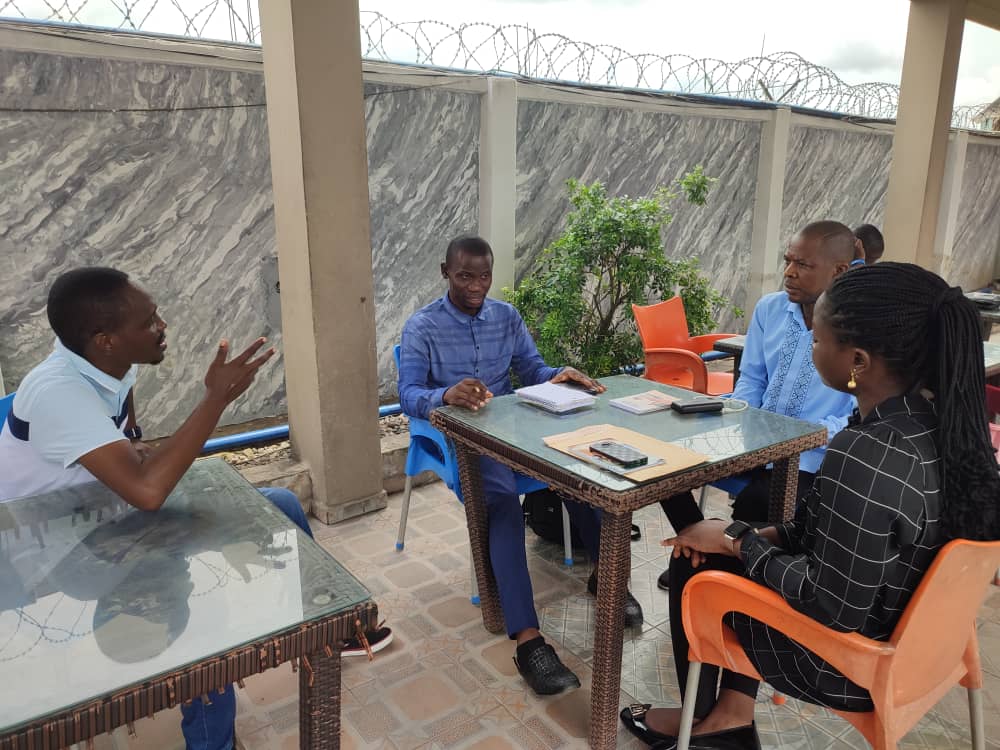
By prioritizing community engagement, sustainability, and local empowerment, the Niger Delta can mitigate climate change impacts and develop a green and blue economy. This approach not only addresses climate change challenges but also improves quality of life, promotes social equity, and conserves the region’s cultural and environmental heritage.
Project Objective
To foster sustainable blue and green economy initiatives that combat climate change and enable local economic growth in the Niger Delta.
Project Area and Target Group
The project targets two communities each in Bayelsa and Delta states, which are highly affected by climate change, environmental degradation, and piracy but have the potential to develop a green and blue economy.
Target communities in Bayelsa State include:
1. Okoroma Community, Nembe Local Government Area
2. Ogboloma/Ayama/Okotjama, Yenegoa Local Government Area
Target communities in Delta State include:
1. Yobebe/Ogulagha Community, Ogulagha Kingdom, Burutu Local Government Area
2. Deghele-Ogiedi Community, Sapele Local Government Area
Project Description
The project employs multiple methods and sources for data gathering, planning, and evaluation, including literature reviews, secondary data analysis, key informant interviews, focus group discussions, and community entry visits. These approaches will provide insights into baseline conditions, challenges, and opportunities related to the project’s objectives in target communities.
Training topics will be tailored to the specific needs and context of the target communities, considering existing knowledge, skills, and cultural norms. Practical, hands-on training will focus on traditional solutions that support green and blue economy livelihoods in a participatory, inclusive, and sustainable manner. These approaches will improve displacement management, resource competition, and policy-making capacity at regional and national levels. Practical actions supported through capacity building and grants will include mangrove replanting, fish stock replenishment, advocacy against illegal fishing, and pollution control.
This project builds on previous AAPW projects and aligns with EU-funded initiatives like “Coping with Climate Change as a Cause of Conflict in Coastal Communities of West Africa.” AAPW has developed a draft toolkit on climate change-sensitive economic and livelihood adaptation strategies. This project will implement relevant aspects of the toolkit, addressing poverty, unemployment, and income inequality due to climate change, environmental degradation, and conflict.
Project Sustainability Plan
Beneficiaries and stakeholders will be involved from the project’s inception. The community’s awareness of climate change issues and increasing poverty due to livelihood depletion will enhance project sustainability. The project offers alternative livelihood options, boosting community participation and capacity to mitigate climate change and develop a green and blue economy, with significant positive impacts on social, economic, and environmental wellbeing.
The project will be self-sustaining, given the critical importance of the environment for livelihoods. Knowledge and exposure to inclusive, community-based sustainable livelihood mechanisms will build community confidence, leading to proactive environmental protection and sustainable livelihood initiatives. The project will promote advocacy for policy reforms and self-determination, fostering lasting mindsets. Beneficiaries will be involved in decision-making, monitoring, and evaluation, skills development, green entrepreneurship, and employment opportunities. Demonstration projects and pilot programs will showcase sustainable practices and technologies, encouraging community ownership and expansion.
Actions for Sustainability
Impact Goals:
- Strengthened governance structures at various levels
- Enhanced community resilience to conflict and climate change
- Improved communication and collaboration across communities and disciplines
Farmers and fisherfolk associations will play a crucial role in institutionalizing sustainable livelihoods in communities. The project is increasing target communities by using these networks, where sustainable livelihood actions and practices are being institutionalized. These networks will enhance effective community response. In terms of community resilience, 4 target communities are benefiting from increased capacity to plan, finance, and implement actions to adapt to green and blue economy initiatives that mitigate climate change. In terms of improved communication and collaboration across communities and disciplines, the project is contributing to the establishment of linkages across a wide variety of thematic experts, as well as bringing together actors from government, the private sector, civil society, and experts on the green and blue economy.
Cross-Cutting Benefits and Linkages Covered by the Project
| Benefits | Cross-Cutting Linkages |
| Education and Awareness | Building community capacity requires education and awareness about climate change impacts, as well as the potential benefits and opportunities of a green and blue economy. This includes providing information and training to community members, as well as fostering dialogue and engagement. |
| Governance and Institutional Arrangements | Effective governance and institutional arrangements are critical to support community capacity building. This includes establishing policies and regulations that incentivize climate change mitigation and green/blue economy development, as well as creating mechanisms for community participation and decision-making. |
| Environment | Community awareness of climate change issues and green economy development will inspire them to advocate for policy reforms and practice livelihoods that will promote the development of a green economy. |
| Gender issues | Gender balance is an integral part of the proposed project and it is typically required as a condition for participation. Women will be allowed to have more significant roles. This will reduce patriarchal tendencies and open spaces for women’s participation which ultimately will lead to a positive change in attitude towards women participation. |
| Human Rights | Human rights are strategic and AAPW mainstreams recognition of human rights into activity implementation, thus, beneficiaries’ rights (e.g. adequate health, nutrition, justice, choice, freedom of expression, etc.) make them become stronger advocates for their environmental protection, management and development aspirations. |
| Social Equity and Justice | To ensure that the benefits of climate change mitigation and green/blue economy development are shared by all, it is important to address social inequities and ensure that marginalized communities have equal access to resources and opportunities. |
| Technology and Innovation | Investing in new technologies and innovation can help communities mitigate climate change impacts and develop a green and blue economy. This includes supporting research and development, as well as promoting the adoption of clean and sustainable technologies. |
| Financial Resources | Adequate financial resources are necessary to support community capacity building. This includes accessing funding for climate change mitigation initiatives and green/blue economy development, as well as leveraging private sector investment. |
| Collaboration and Partnerships | Collaborating with multiple stakeholders, such as local governments, businesses, civil society organizations, and academia, is important to advance community capacity building. This can include sharing knowledge and expertise, pooling resources, and coordinating efforts to maximize impact. |
Project Activities
Baseline study: The study’s overall goal was to conduct a baseline survey of projects advancing community capacity to mitigate climate change impacts and develop a green and blue economy in the Niger Delta in two selected local government areas and communities in Bayelsa and Delta states, to determine the extent to which climate change has affected the selected communities and how the effect can be mitigated through the use of climate-smart agriculture and sustainable development.
The baseline results from the four focal communities show that both men and women are involved in green economy farming. In Okoroma, 75% of farmers are women and 25% are men, whereas in Ogboloma/Ayama/Okotiema, 84% are female and 16% are male, and in Deghele/Ogiede, 60% are female and 40% are male farmers. While in Yobebe/Ogulagha, all the farmers are female.
Furthermore, the principal crops grown in the four communities are yam, cassava, plantains, vegetables, and coco yam, respectively. The main crops of the Okoroma community are cassava, plantains, coco yam, and vegetables. Farmers in Ogobolama/Ayama/Okotiema cultivate key crops such as yam, cassava, plantains, and coco yam. Cassava, plantain, and vegetables are among the most widely grown crops in Deghele/Ogiede.Yobebe/Ogulagha’s main crops include plantain, coco yam, cassava, yam, and vegetables. Meanwhile, the majority of farmers in the four villages have been cultivating these crops for four years, and both men and women are on the farms where they grow their harvests.
However, it is worth noting that in the Okoroma and Yobebe/Ogulagha communities, farmers own their farmlands, whereas only 4% of farmers in Ogboloma/Ayama/Okotiema and 3% of farmers in Degele/Ogiedi rent their farms, and the major inputs used by farmers include seed/seedlings, suckers, stems, and herbicides. Farmers in the Okoroma community primarily use labour for land clearing, ploughing, spraying of herbicides, weeding, harvesting, and transportation. Similarly, in Ogboloma/Ayama/Okotiema, labour services are used for land clearing, ploughing, dredging, basin formation, transplanting, spraying of herbicides, weeding, harvesting, and transportation. In Deghele/Ogiedi, labour is used for land clearing, spraying of herbicides/pesticides, weeding, and harvesting, and in Yobebe/Ogulagha.
Network Launch in Bayelsa and Delta States
The project network launch events, which were milestone events that brought together all of the stakeholders, community participants, green and blue economy actors, and media organizations identified during stakeholder mapping and media engagements to drive the project through its lifecycle in both states, were preceded by pre-event interviews. As part of the project’s visibility plan, pre-event interviews were organised to engage the target constituencies on the issue of climate change and to build their capacities to tackle its negative impacts by developing the green and blue economy. These events were held at Peoples’ 93.1 FM, Yenagoa, Bayelsa State, MEGA 89.1 FM, Warri and Kpoko 100.5 FM, Warri, Delta State.
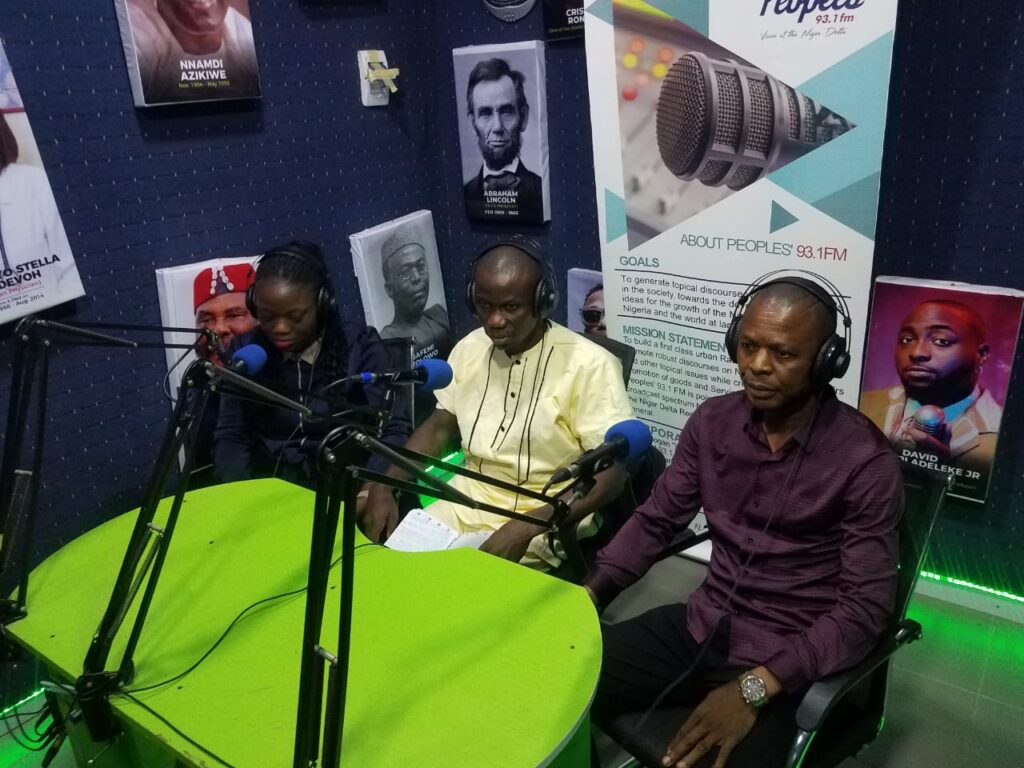
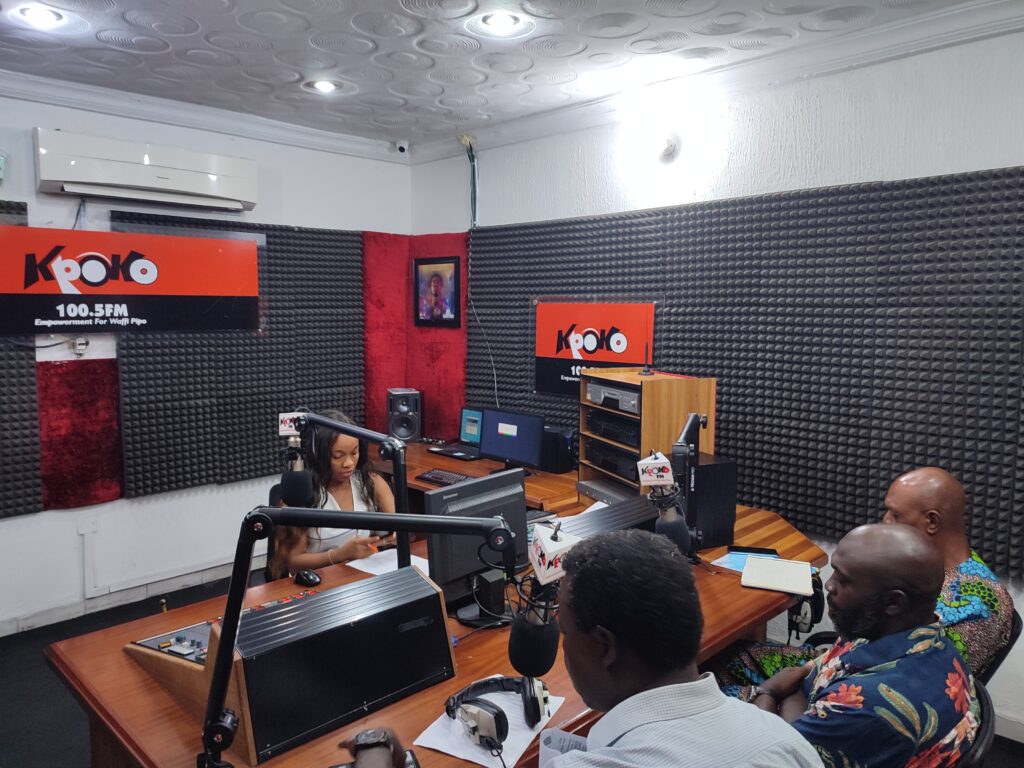
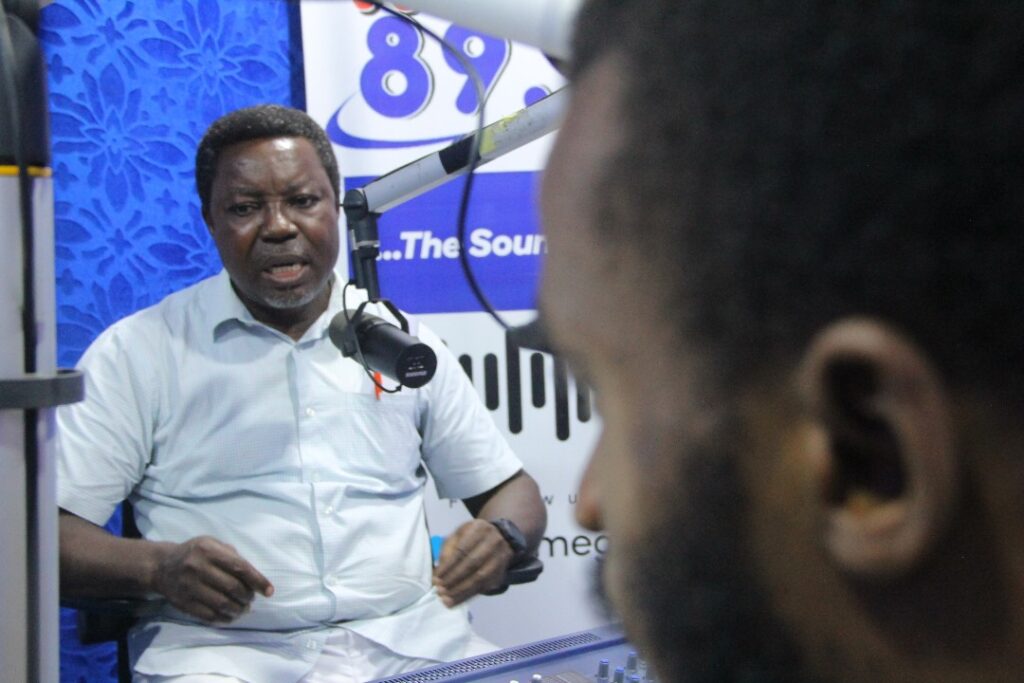
The network launch events featured the active participation of the project’s funder, the Government of Denmark, ably represented by the Danish Embassy in Nigeria; representatives of the Bayelsa and Delta state governments, traditional rulers and officials from MDAs, CSOs, media organizations, universities, and research institutes. The project communities were also represented. Technical experts from MDAs, the private sector, CSOs, and academia discussed current policies and emerging trends in climate change. They identified key challenges such as policy gaps and coordination issues, highlighting opportunities for enhancing existing policies and integrating new technologies.
At the network launch events, representatives from communities and network members shared experiences and strategies for coping with climate change impacts. These were expounded by female farmers and fisherfolks, who explained the challenges they have faced over time in their farming and fishing activities concerning climate change impact. Experts from the MDAs, private sectors, and some informed communities presented innovative technologies and approaches to address climate change, including case studies and real-world applications, showcasing cutting-edge solutions and generating significant interest and discussion.
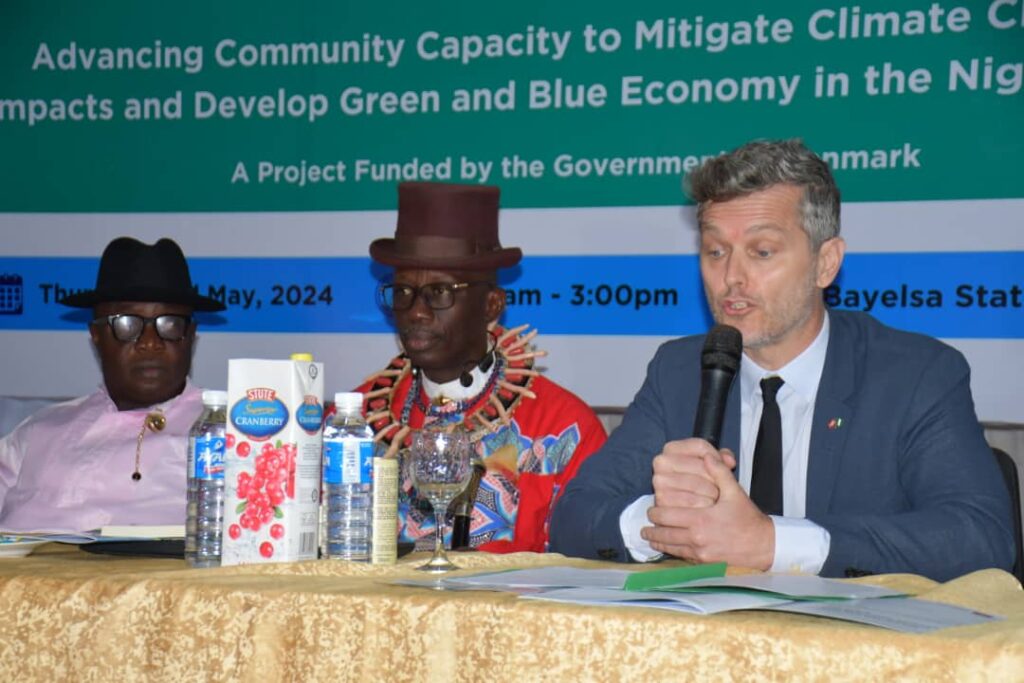
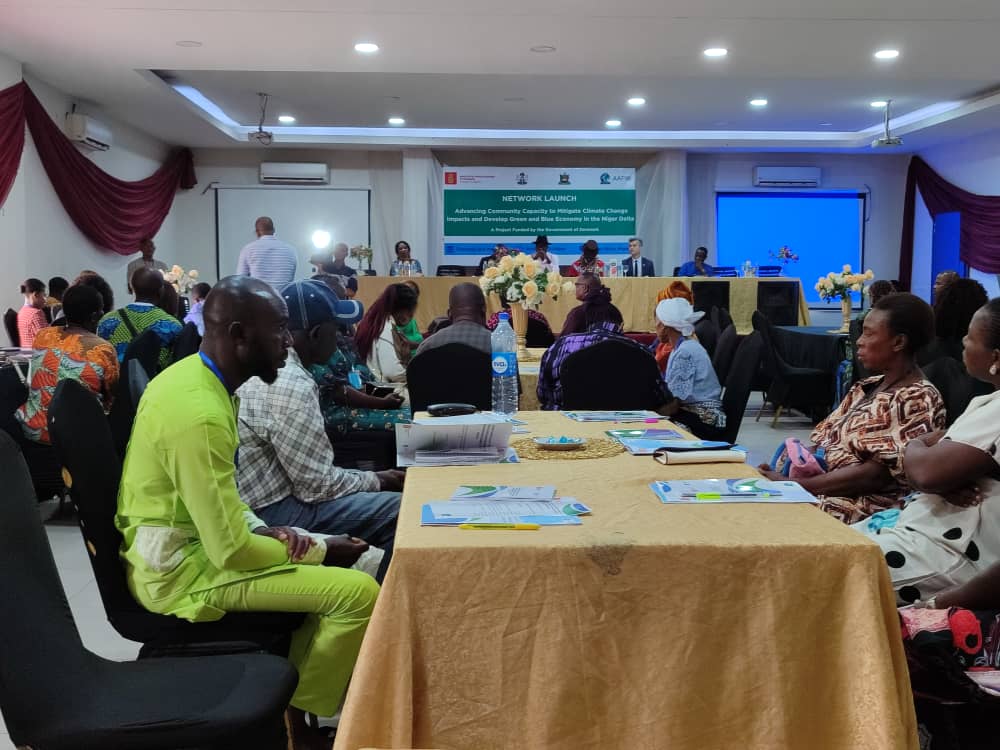
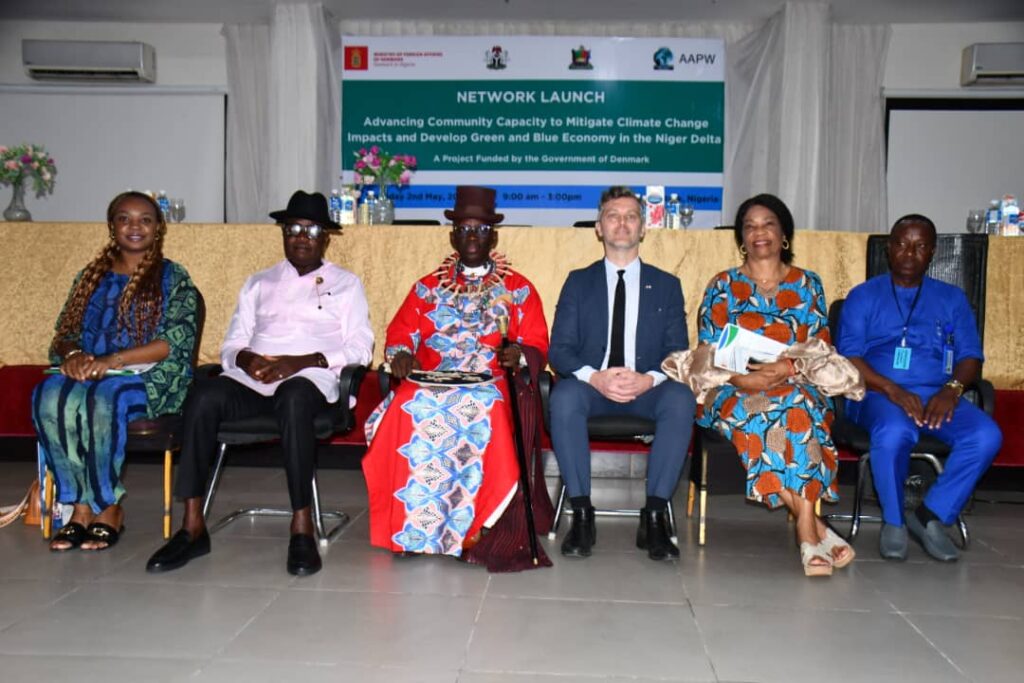
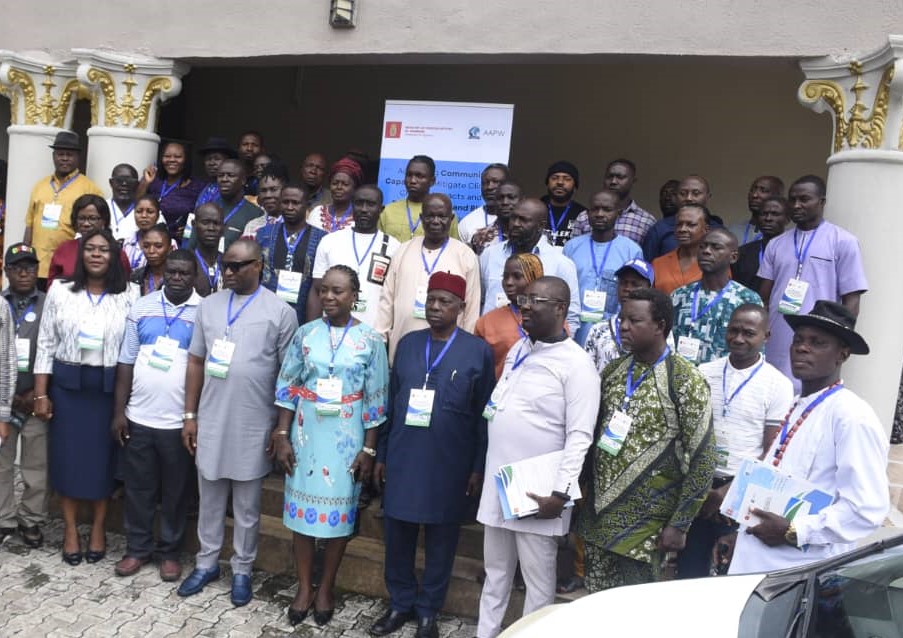
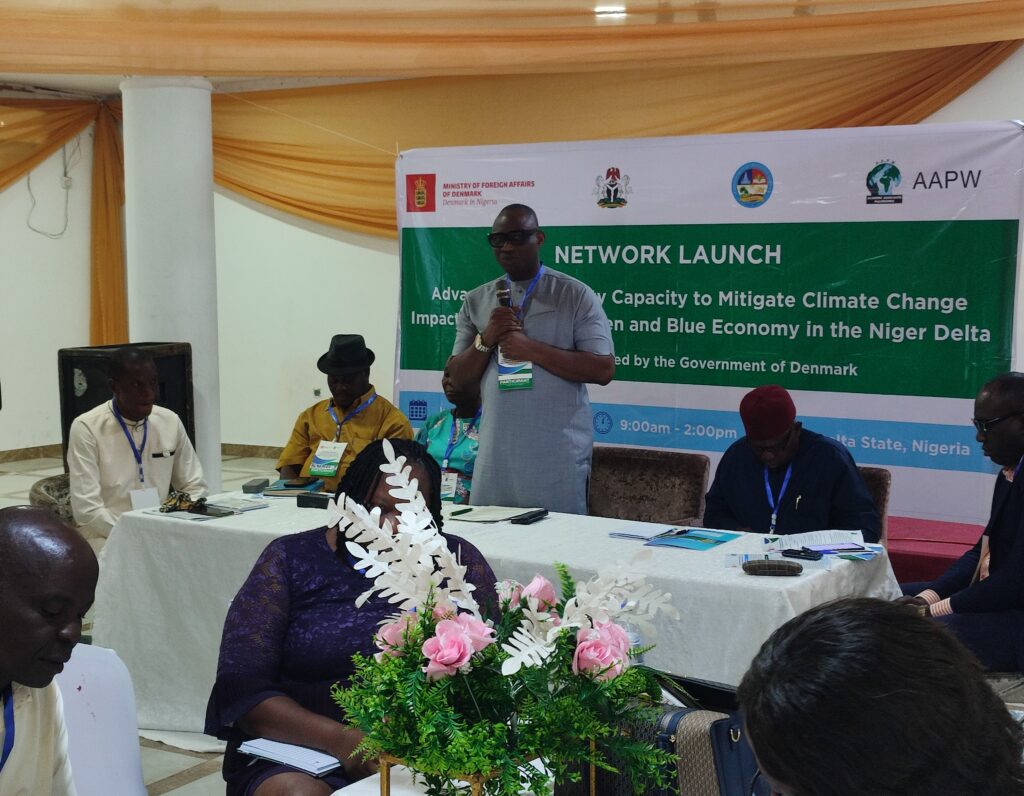
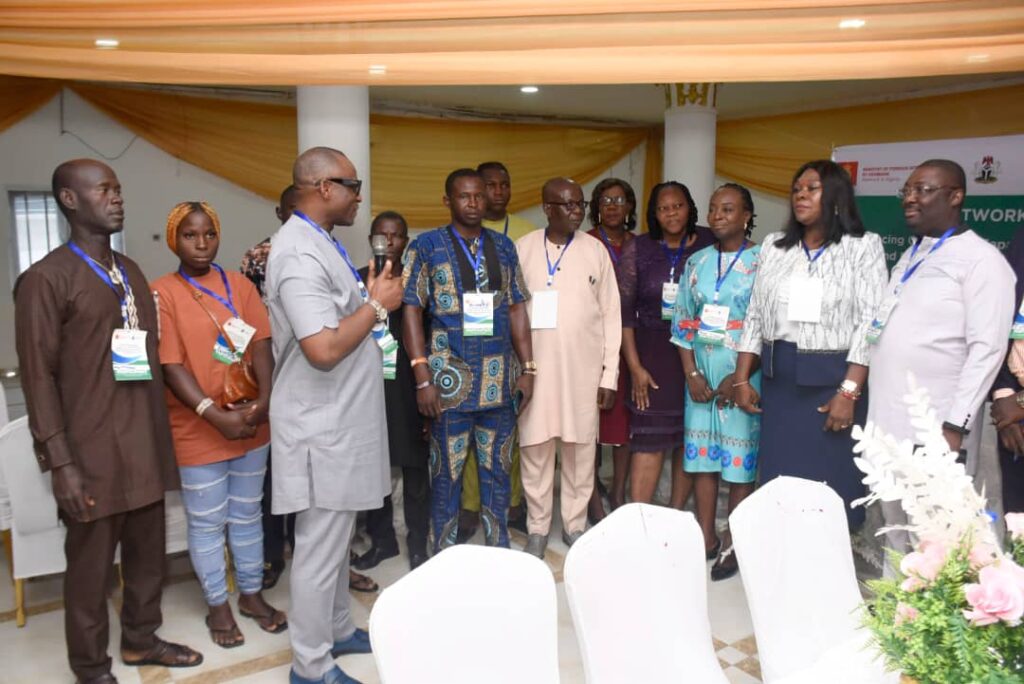
The project has successfully organized network meetings in Delta and Bayelsa states. These meetings aimed to foster partnerships with an array of stakeholders, including representatives from the Ministry of Environment, Ministry of Agriculture, Ministry of Information, and Ministry of Water Resources. Private sector participants involved in the Blue and Green Economy and members from academia, media, NGOs, and community leaders were also engaged.
The primary focus of these collaborations is to ensure the successful implementation of climate change mitigation strategies and promote sustainable economic growth in the region. By establishing strong partnerships among these diverse groups, the project seeks to build a united front to address climate challenges, enhance community resilience, and drive innovation in the green and blue economy. The network meetings have laid the groundwork for future collaborations and initiatives that will benefit local communities in Bayelsa and Delta states, helping to create a sustainable and climate-resilient Niger Delta.
